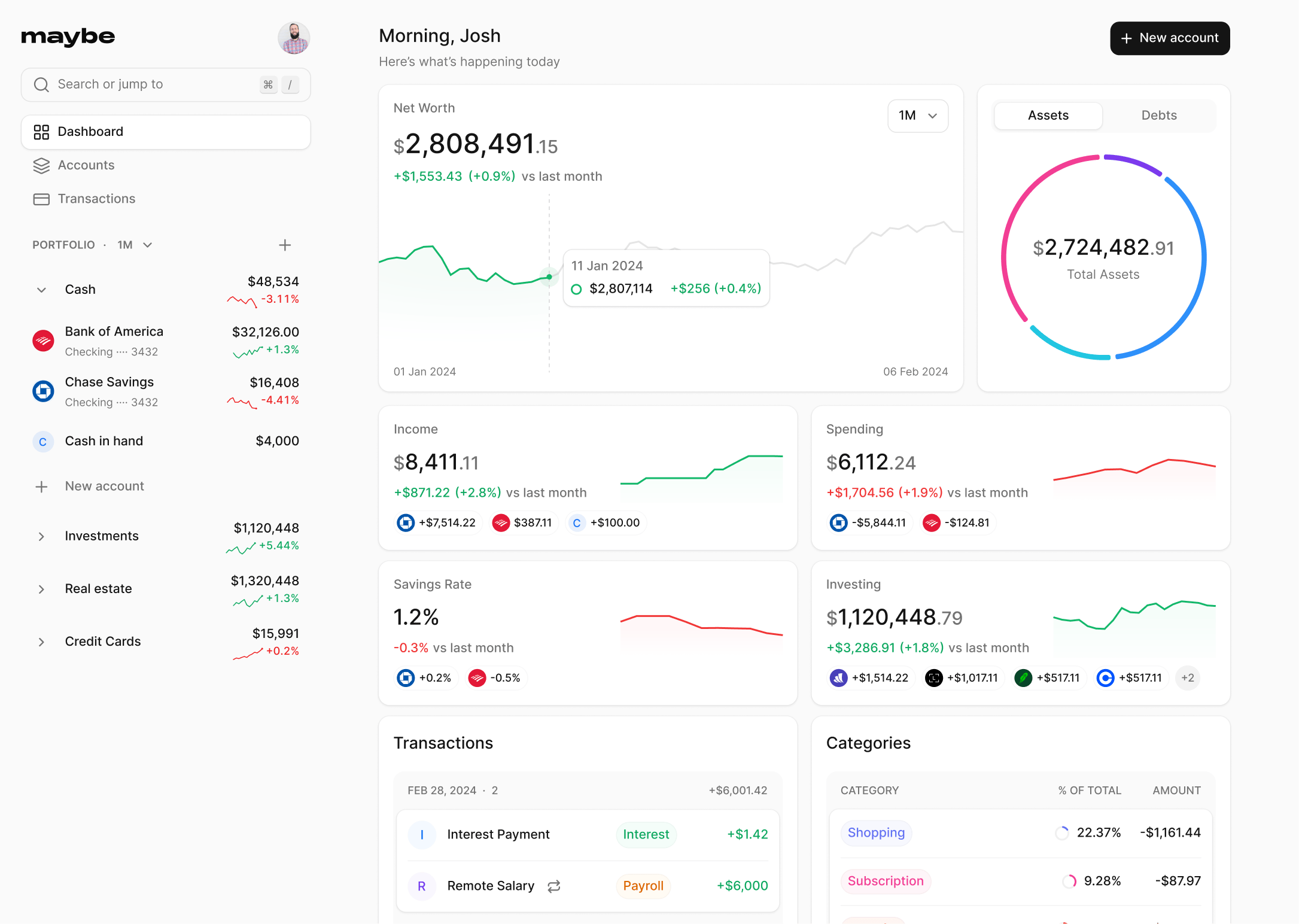Loud Budgeting: A Step-by-Step Guide to Financial Success

Author
Josh Pigford
In an era where personal finance is more crucial than ever, the concept of loud budgeting emerges as a compelling strategy to ensure financial success. At its core, loud budgeting invites individuals to take a more proactive and vocal approach to managing their finances, a method that stands as a stark contrast to traditional, more reserved budgeting practices. By emphasizing open communication about financial goals and strategies, this approach aims to demystify the complexities of personal money management. The significance of adopting such a strategy cannot be overstated, as it seeks to not only improve one's immediate financial health but also to secure long-term financial stability, harnessing the power of effective budgeting, saving money, and adhering to principles like the 50/30/20 rule for balanced financial planning.
Examples of Loud Budgeting
Declining Social Invitations
- Personal Choices: Loud budgeting often involves making personal financial decisions public. For instance, someone might decline an invitation to a high-end restaurant by explaining that they are saving for a significant financial goal, thus opting for more budget-friendly social interactions.
- Social Media Sharing: Increasingly, individuals are using platforms like TikTok to share their budgeting journeys. This includes posts about declining certain expenses to stay within budget, which not only promotes accountability but also encourages a community of fiscal responsibility.
Online and Family Interactions
- Online Community Engagement: Many find it beneficial to share their financial goals and progress on social media or financial forums. This transparency can foster a support network that offers encouragement and practical advice during challenging financial periods.
- Family Budget Meetings: Implementing loud budgeting within the family setting involves holding regular meetings where all members can discuss and align on financial goals. This might include decisions on cutting back on certain types of spending or setting collective savings goals, making the budgeting process a collaborative family effort.
Real-Life Scenarios
- Handling Invitations: When invited to expensive outings, loud budgeters might suggest alternative, less costly activities. For example, instead of dining out at a trendy spot, they might propose a home-cooked meal or a future gathering when budget allows.
- Luxury Temptations: Confronted with the desire to purchase a luxury item, a loud budgeter would assess how this fits into their financial plan. They might opt to follow social media influencers who promote sustainable living as a way to reinforce their budgeting choices.
- Family Events: In scenarios like planning a family trip that is financially burdensome, loud budgeters would openly discuss budget constraints, suggesting more affordable alternatives or expressing the need to save for other family priorities.
By incorporating these practices, individuals practicing loud budgeting not only make informed financial decisions but also promote a culture of openness and accountability around money management.
Pros and Cons of Loud Budgeting
Pros of Loud Budgeting
- Increased Accountability: Sharing financial goals publicly increases accountability, providing motivation to adhere to budgeting decisions and financial plans.
- Enhanced Communication: Loud budgeting promotes open discussions about money, which can lead to better understanding and alignment on financial goals within communities and families.
- Stress Reduction: By discussing financial plans openly, loud budgeting can distribute the responsibility of financial decisions, reducing individual stress.
- Greater Financial Awareness: Regular discussions and updates about financial progress enhance awareness and can help identify areas for improvement in money management.
- Community Support: Engaging with like-minded individuals through various platforms offers support and encouragement, which can be crucial in maintaining financial discipline.
- Improved Goal Setting: Publicly setting financial goals helps track progress and celebrate achievements, fostering a sense of accomplishment and community support.
Cons of Loud Budgeting
- Potential for Oversharing: There is a risk of sharing too much personal financial information, which can lead to discomfort or disinterest among others.
- Limited Diplomacy: Loud budgeting may not always be the most tactful approach, especially in social situations where financial discussions might be considered inappropriate.
- Narrow Focus: While it can initiate important financial discussions, loud budgeting should be part of a broader financial strategy to be truly effective, including regular expense reviews and emergency planning.
- Fear of Missing Out (FOMO): Publicly declining spending opportunities can sometimes lead to feelings of missing out on social events or experiences.
- Financial Pressure: Setting high savings goals can feel like an additional expense and may lead to financial pressure, especially if the goals are not aligned with one's income.
- Privacy Concerns: Excessive sharing can increase the risk of identity theft and scams, making it important to balance openness with privacy protection.
How to Practice Loud Budgeting
Share Your Financial Priorities
Loud budgeting encourages transparency in financial decisions, allowing individuals to openly communicate their fiscal constraints and objectives. By clearly stating financial limitations when declining social invitations, one promotes a culture of financial responsibility and understanding among peers. This approach not only helps in managing personal finances effectively but also supports the establishment of clear financial boundaries.
Seek Allies and Accountability Partners
Finding allies who share similar financial goals can significantly enhance the effectiveness of loud budgeting. Engaging family members, friends, or even online communities as accountability partners ensures a support system that motivates and sustains financial discipline. Regular interactions with these allies, such as sharing progress and discussing financial strategies, foster a collaborative environment conducive to achieving financial targets.
Find Flexibility
Integrating flexibility into loud budgeting allows for a balanced lifestyle that accommodates both financial discipline and social engagements. For instance, if attending a costly event is important, one might consider adjusting other budget areas to accommodate this expense. This adaptability ensures that while financial goals remain a priority, there is also room to enjoy valued social activities without deviating from budgetary constraints.
Know Where the Fun Is
Emphasizing affordable or free entertainment options is crucial in loud budgeting. Instead of expensive outings, one can explore alternatives like outdoor activities, home gatherings, or community events that provide enjoyment without straining the budget. This not only helps in adhering to financial limits but also enriches social life, proving that fun does not always have to come with a high price tag.
Why raise any money?

Josh Pigford
Maybe: Can You Claim Financial Planning Fees as a Tax Deduction?

Josh Pigford
The complete guide to managing and optimizing your expenses

Josh Pigford
Join the Maybe  waitlist
waitlist
Join the waitlist to get notified when a hosted version of the app is available.
